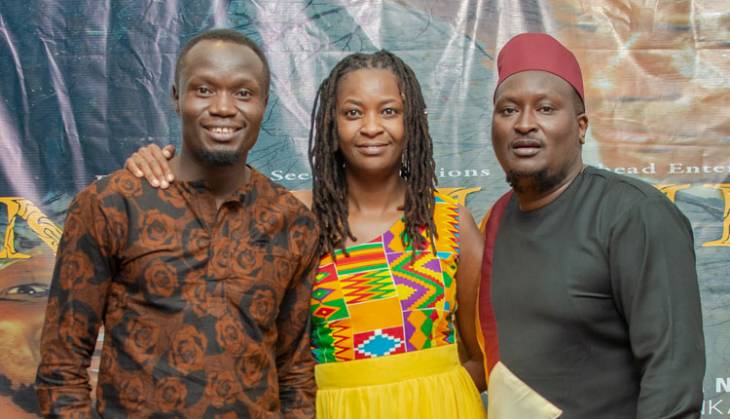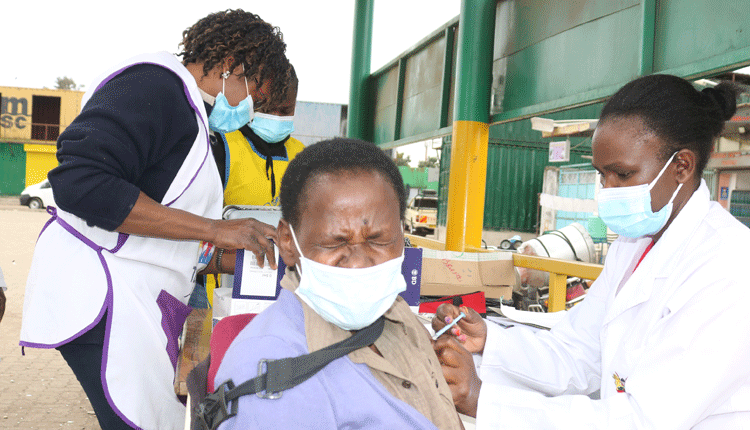Film industry players predict a buoyant year ahead

Whilst the local film sector showed every sign of overdoing itself in the year gone by, much effort is still needed to make it boom this calendar year. And as Nailantei Norari writes, more collaborations, creativity and festivals would be jab in the arm the industry needs in 2022 to completely recover from the vagaries of the Covid-19 pandemic.
In 2021, the Kenyan film industry grew in leaps and bounds. In the month of December alone, more than five Kenyan films premiered in theatres, with Kenyans showing up in large numbers to support the local talent.
Numerous local television series and movies are now being streamed on worldwide platforms such as Showmax and Netflix, as testament to the high quality of work that the local film industry is producing.
The rapid industry growth has seen many people get more creative on how to market and sell their films.
The industry is slowly growing and becoming less dependent on the local TV stations as the main film markets.
Film creatives are making series and airing weekly episodes on YouTube and garnering thousands of views while at it.
Others are making films and creating pay-per-link websites in a bid to recoup the money spent on the filming and in the hopes of making a profit.
While these are just some of the leaps that the film industry has made in the past year, there were three things that stood out throughout the year that was.

These were the importance of hard work and creativity, the immense power in collaboration and the importance of film festivals and awards.
Hard work and creativity
Screenwriter and actor Abel Mutua started his journey as an actor on Tahidi High, a high school drama series that aired on Citizen TV.
While there, he set his eyes on being a screenwriter and telling African stories. He is the brains behind the runaway 2021 film A Grand Little Lie, a film that saw the premiere night tickets sold out.
Also, more than 23,000 people bought the link to watch the story. Abel is wholly grateful to the fans who have made it possible for him and other actors and crew members to make a living out of filmmaking.
He believes that the team’s hard work is evident in the work they put out.
“I am passionate about storytelling. I love telling stories that are authentic and that have an impact.
This was what birthed my YouTube channel Young and Stupid. The channel in turn birthed our first film A Grand Little Lie, after the viewers, the wakurugenzi started clamouring for a film remake of one of the episodes.
We hope to keep making entertaining and educative films. This is just our debut feature film.

There is a lot more creative projects where that came from,” Abel shares with Spice.
He believes that filmmaking is an industry just like any other. His belief is in creating great work and growing the industry in whatever capacity, be it as an actor or screenwriter.
He says the industry has the potential to support thousands of people.
But growth cannot be achieved unless people are willing to collaborate. Nowhere is this truer than in the film industry, where crew members from rival houses often have to come together to make a film come true.
Medicine Man is one such project. It is a film that looks at whether there is an intersect between the old and modern ways of life and it debuted in cinemas in the first week of December and is still showing in cinemas.
It is a collaborative project between Edijoe Mwaniki, Peter Kawa and Betty Kathungu-Furet.
Collaborative efforts
Edijoe, the screenwriter for the movie Medicine Man, believes that the final project is normally better when filmmakers come together as they bring together different ideas and viewpoints that amalgamate to make a greater whole.
“Betty always wanted to do a film in Embu. Medicine Man is an original Betty Kathungu-Furet story.

I came on-board and wrote the screenplay in English. We did several edits on it as a group, then proceeded to shoot it over 35 days.
We were three producers on the film, Betty, Peter and I. The post-edit took six months, as we were keen on making the best film we possibly could.
I firmly believe that Medicine Man is a successful project mainly due to the collaborative factor,” shares Edijoe.
Film Crew in Africa (FCIA) Production co-founder Ledama Sempele echoes the sentiments citing that collaborative projects have a power that transcends the power and technical prowess of each of the constituting partners.
He shares that such projects tend to be the best work from all the parties involved.
He and Linda Karuru – co-founder of Blink Productions – co-produced Adisa in collaboration with German students.
Adisa is a short film, based on a true story where a diplomatic convoy accidentally hits and kills an African child.
The story was written by German students, but was shot in Kenya with a Kenyan cast and crew.
The film has gone on to clinch numerous awards in film festivals (including the Silver Student Oscar at the 48th Student Academy Awards 2021), a testament to the power of collaboration.
“Kenya has numerous amazing locations. Whatever genre of film you would like to shoot; you can find something to work with.
From the vast green meadows of the Aberdares to the vast deserts in Northern Kenya, you can find the perfect location whatever your script is. Kenyan film crews are also highly experienced.
“Adisa brings together the expertise of Kenyan filmmakers, various Kenyan locations and the scriptwriting and camerawork of a few German students and professionals to make a film worthy of all the accolades that it has garnered.
That the Kenya Film Commission is committed to supporting the film industry and takes an active role in aiding productions during licensing and shooting is an added boon that will see the Kenyan film industry grow from strength to strength,” says Ledama.
Awards and festivals
While Adisa has won numerous awards, the producers share that they set out to tell an emotive story.
Awards just happen to be a by-product of great storytelling. This begs the question of what role film festivals and awards play in growing the film industry if at all.
Isaya Evans, a director and filmmaker, believes that film festivals and awards are an important part of the film industry as they incentivise growth.
He gives an example of the Machakos Short Film Festival, which many filmmakers take part in not just for the awards, but also to test their skill level against other local talent.
Isaya is a beneficiary of the festival as his seven-minute film Loop won the best best wardrobe and best actress awards in the 2021 Machakos Film Festival.
He co-wrote and directed the film. He shares how the festival’s call for short films touching on the theme of water made numerous filmmakers come together, make films and submit for the awards.
Even if the filmmakers do not win, they still gain invaluable process into the filmmaking process just by simply creating new work.
“Most filmmakers would make films with or without awards or festivals. But film festivals give you an opportunity to gauge your prowess against other filmmakers.
It is a chance to spot your weaknesses and correct them. It is a chance to see what other filmmakers are doing and learn and grow from them. Festivals and awards also reward hard work.
“Filmmaking is expensive hard work. Getting recognised can be the impetus a filmmaker needs to keep pushing forward.
The Kalasha Awards and The Machakos Film Festival and Awards are a good example of awards that fete great Kenyan filmmakers, thereby incentivising the production of even more and hopefully greater works,” Isaya says in conclusion.















